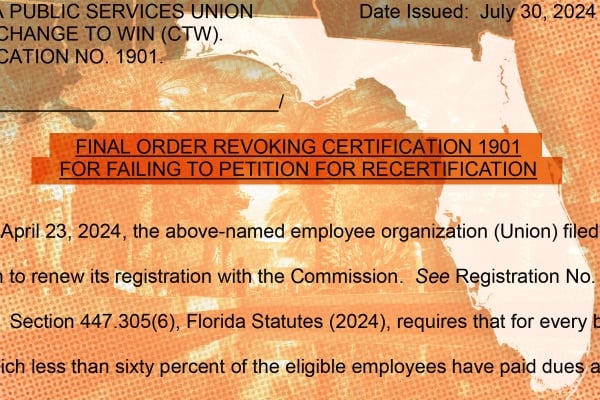As of January 1, 2021, a new law has come into effect in Florida that has dissolved eight adjunct unions in the state. The law, known as the “Adjunct Union Dissolution Act,” was passed by the Florida legislature last year and has been met with controversy and backlash from adjunct faculty members and labor advocates.
Under the new law, adjunct unions at eight public colleges and universities in Florida have been disbanded and are no longer recognized as bargaining units for adjunct faculty members. This means that these adjunct faculty members will no longer have the same collective bargaining rights and protections that they once had.
The decision to dissolve these adjunct unions has been criticized for its potentially negative impact on adjunct faculty members, who are already some of the most vulnerable and underpaid workers in higher education. Without the representation and support of a union, adjunct faculty members may face challenges in negotiating fair wages, benefits, and working conditions.
Proponents of the law argue that it will streamline the bargaining process and make it more efficient, ultimately benefiting both adjunct faculty members and the colleges and universities where they work. They also claim that the law will help to curb the power of unions and prevent them from having too much influence in the negotiation process.
However, critics argue that the dissolution of these adjunct unions is a direct attack on the rights of adjunct faculty members and a step in the wrong direction for labor rights in the state. They argue that adjunct faculty members deserve fair wages, benefits, and working conditions, and that unions are crucial in helping them achieve these goals.
As of now, it remains to be seen how the dissolution of these adjunct unions will affect adjunct faculty members in Florida. It is likely that the debate over this new law will continue to rage on, with both sides making their voices heard and advocating for what they believe is right for adjunct faculty members in the state.



